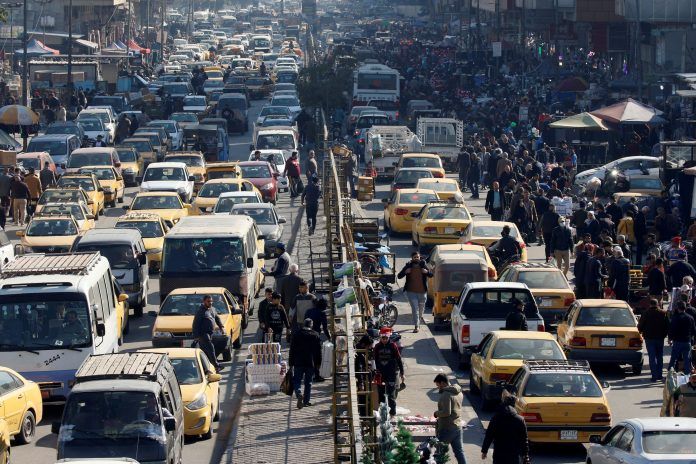
By Ahmed Rasheed
BAGHDAD, Dec 29 (Reuters) – Iran will resume normal gas flows to Iraq on Wednesday after reaching an agreement with Iraq on Tuesday over unpaid bills, a spokesman for Iraq’s electricity ministry said.
Iran‘s state gas company said on Monday it had cut supplies to neighbouring Iraq over arrears of more than $6 billion. The Iraqi electricity ministry said the cuts placed Baghdad and other cities at risk of serious power shortages.
An agreement was reached during a meeting between Iranian Energy Minister Reza Ardakanian, who is visiting Baghdad, and Iraqi counterpart Majid Mahdi to resume normal gas flow rates as of Wednesday evening, spokesman Ahmed Moussa told Reuters.
Iran‘s energy minister also met with Prime Minister Mustafa al-Kadhimi and conveyed the Iranian government’s pledge to “urgently resume gas pumping which had been slashed recently after technical problems”, a statement from the prime minister’s office cited Iran‘s minister as saying without giving details.
Energy Minister Ardakanian told state news agency IRNA that “good agreements were reached with the Iraqi officials to withdraw Iranian funds from Iraq to pay for the purchase of the coronavirus vaccine from Europe using Iran‘s existing financial resources in Iraq.”
Tehran said last week it had received approval from U.S. authorities to transfer $244 million to buy coronavirus vaccines from the World Health Organization-led COVAX alliance.
Ardakanian said Iraqi authorities had paid back an “appreciable portion” of their debt to Iran‘s state gas and electricity companies, IRNA reported. He did not give any amounts.
“With these new arrangements, we hope to use our existing financial resources in Iraq more quickly to purchase basic goods and other needed items in the near future,” Ardakanian added.
Iraq said on Dec. 21 it was ready to export 700,000 tonnes of barley to Iran at a price of $125 per tonne as part of payments owed by the Iraqi government to Iran.
An Iraqi trade ministry official said on Tuesday the barley export shipments to Iran, in addition to other goods, will be used to pay back part of the delayed gas debts.
Iran has been unable to access billions of dollars in assets in several countries due to U.S. sanctions.
The United States has insisted that oil-rich Iraq, OPEC’s second-largest producer, moves towards self-sufficiency as a condition for its exemption to import Iranian energy, yet Baghdad has struggled to do so, in part due to low oil prices.
(Reporting by Ahmed Rasheed; Additional reporting by Dubai newsroom; Editing by David Evans)

